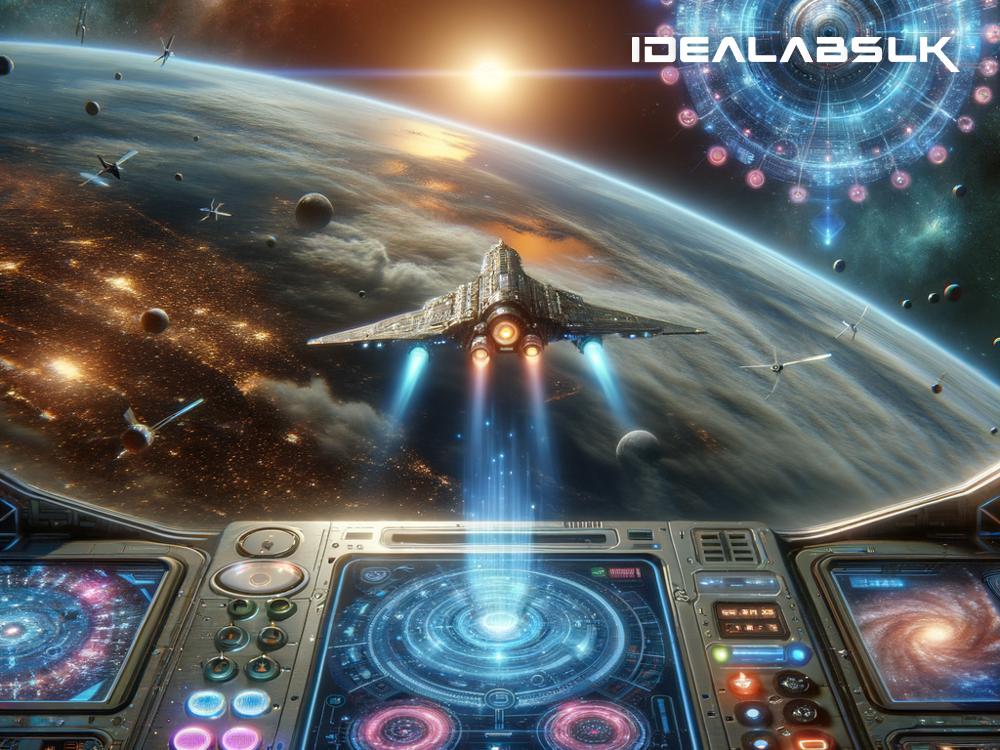How AI Will Enable the Future of Autonomous Spacecraft and Space Tourism by 2025
As we venture further into the 21st century, our gaze turns skyward with ambitions that align with the stars. Among these lofty dreams, two stand out: autonomous spacecraft and space tourism. As far-fetched as they may sound, the evolution of Artificial Intelligence (AI) is turning them into not just possibilities, but imminent realities. By 2025, AI is set to revolutionize the way we explore the cosmos, making space more accessible, safe, and fascinating for everyone. Let's delve into how AI is powering this cosmic leap.
Navigating the Vastness of Space
Imagine a spacecraft navigating the vast, uncharted expanse of space, making split-second decisions, adjusting its course, and reacting to unforeseen obstacles. This is not the work of science fiction but the near future, thanks to AI. Autonomous spacecraft powered by AI can analyze vast amounts of data from their sensors in real-time, identifying the best path forward, and even learning from their experiences. This means more efficient, safe, and successful missions. By 2025, it's anticipated that these smart ships will be at the forefront of exploring distant planets, asteroids, and beyond.
Keeping Astronauts Safe
The dream of extending humanity's reach into space comes with the mammoth task of ensuring astronaut safety. AI steps into this role as a vigilant overseer, monitoring health, systems status, and environmental conditions. It can predict potential problems before they happen, allowing for preemptive actions to be taken. For instance, if oxygen levels start to dip or if there's an unforeseen leakage, AI systems can alert the crew and even take automated steps to mitigate the issue. This guardian role of AI enhances the viability of long-duration spaceflights, making the dream of Mars colonization seem closer to reality.
The Dawn of Space Tourism
Space tourism isn't just about having the wealth to travel beyond Earth—it's about making space accessible to more and more people. AI is crucial in making this burgeoning industry both safe and feasible. Autonomous spacecraft, powered by AI, can offer smooth and guided tours without the need for extensive onboard crew. This could lower costs and make space travel a realistic option for the adventurous.
Moreover, training for tourists can be personalized using AI, ensuring they're adequately prepared for their journey without the need for lengthy and expensive training programs. This tailored approach means that space tourism can cater not just to the physically fit but to a wider range of people, broadening the horizon of who can consider themselves a space traveler.
Enhancing Experiences
Beyond the nuts and bolts of spacecraft operation and safety, AI will also play a pivotal role in enhancing the space tourism experience. Imagine virtual reality (VR) simulations onboard that are guided by AI, offering interactive educational content or exotic spacewalk simulations. These immersive experiences could enrich space travel, making it not just a journey but a profound learning opportunity.
Preparing for 2025 and Beyond
As we approach 2025, the integration of AI in space exploration and tourism is accelerating. Agencies and companies are investing heavily in AI research and development, understanding that these technologies are key to overcoming the current limitations in space travel. Collaboration between nations and between the public and private sectors is also critical in developing the global frameworks needed to support these advancements.
Education plays a pivotal role too. As AI becomes more integrated into space exploration, there's a growing need for experts who not only understand the complexities of space but can also harness the power of AI. This means more investment in STEM education and opportunities for young people to engage with space science and AI technology.
Looking to the Future
The vision of autonomous spacecraft and space tourism by 2025 reflects more than just technological ambition; it's a step towards a future where the cosmos becomes a new frontier for exploration, growth, and even habitation. Powered by AI, this future isn't just about machines making decisions but about opening up new realms of possibility for humanity. It's about making the infinite a little more familiar and the once unimaginable a tangible reality.
In conclusion, as we inch closer to 2025, the role of AI in shaping the future of space exploration and tourism becomes increasingly significant. Through its ability to learn, adapt, and make critical decisions, AI is not just a tool but a partner in our quest to explore the cosmos. This partnership promises not only to propel humanity further into space but also to make the journey safer, more accessible, and infinitely more exciting. The future of space exploration is bright, and AI is lighting the way.

